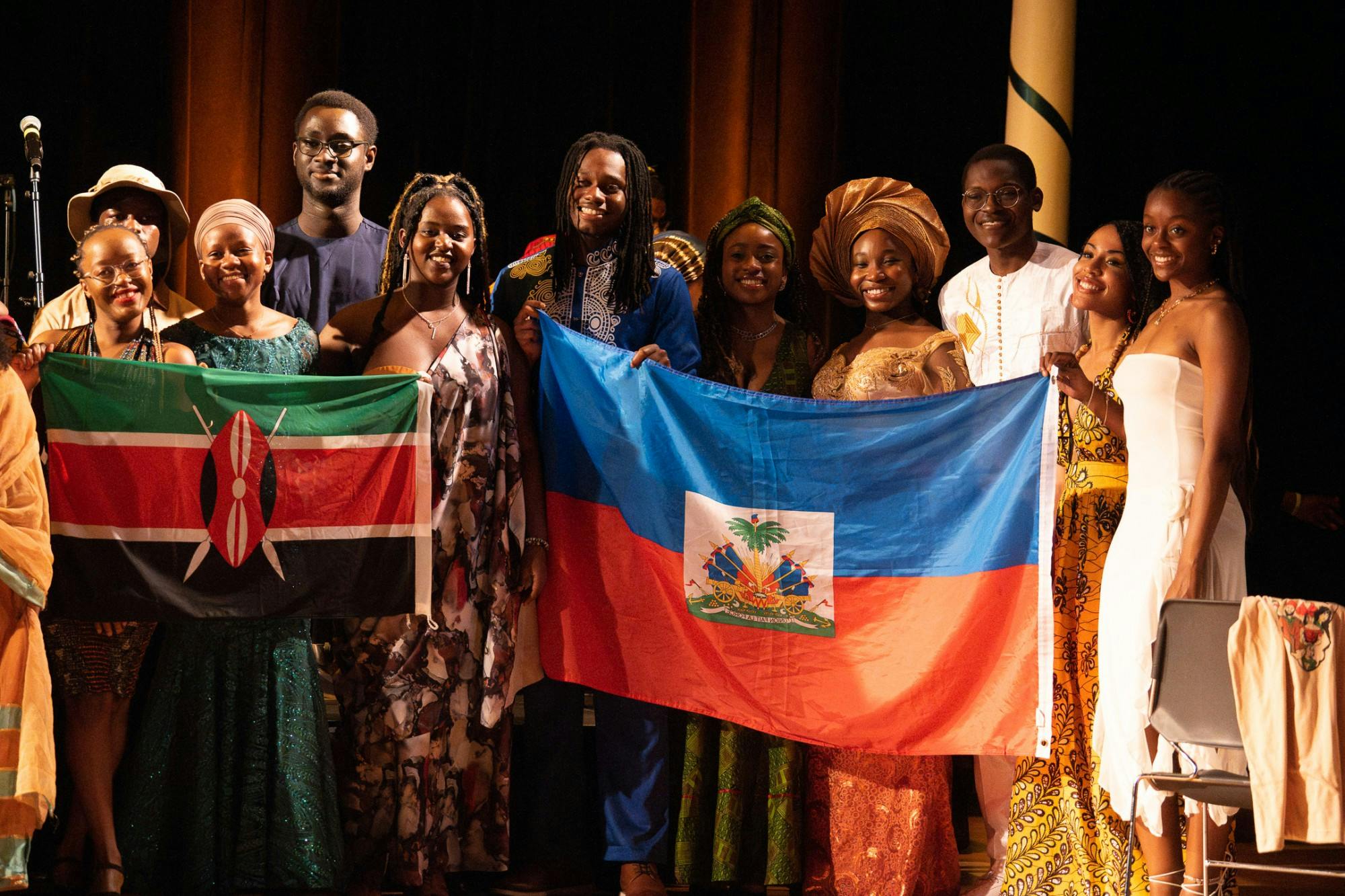From May 8 to 13, the Dartmouth African Students Association hosted its first Africa Week since 2019, celebrating African identity and culture on campus. The program, which had been suspended due to the pandemic, returned after its four-year hiatus, DASA announced in a campus-wide email on May 5. DASA first held Africa Week in May 2017, the email stated. The week was spearheaded by the Africa Week Committee, a group of community members across various organizations.
DASA events coordinator and Africa Week committee head Hosaena Tilahun ’25 wrote that the theme of this year’s Africa Week was Afro-Renaissance: “a revival of an institutionalized celebration of Africa Week at Dartmouth” and a “reminder that [African students have] always been here [at Dartmouth].” DASA marketing and social media head Chukwuka Odigbo ’25 added that the theme represents “a renewal” of Africa Week after its pandemic hiatus.
“Having this week is like saying: ‘Hey, we’re still here, we’re back, we’re bigger and we’re better,’” Odigbo said.
Africa Week honors Africa Day, an annual international event that commemorates the founding of the Organisation for African Unity on May 25, 1963. The Organisation for African Unity brought together 32 African countries independent from colonial rule to decolonize the continent and eradicate apartheid, the email explained.
Odigbo added that Africa Week helps celebrate the continent at large.
“The major goal of Africa Week, for me, is to celebrate ‘Africanness’ in all its forms and in the ways being African manifests: politics, arts, food, music, thought process, norms [and] fashion,” Odigbo said. “In addition, I like to think Africa Week makes other folks on campus more aware about the continent than they may have been in the past.”
DASA’s goal with Africa Week was to bring elements of Africa, such as “the sounds of home, the taste of food and [the continent’s] vibrant communities” to campus, the email stated.
The week’s programming kicked off with an event titled “Community Discussion: Why Afro-Renaissance” on May 8, which focused on African identity and African student life at Dartmouth, according to event materials provided by Tilahun.
Tilahun said that the community discussion was a “great introduction” to the week, adding that student cooks at various events, such as the community discussion and barbecue, helped bring the community together.
“To have students behind the cooking was really impactful because the majority of these are dishes we’ve inherited from our families,” Tilahun said. “To be able to connect with people and serve an array of African dishes was really fun.”
On May 9, organizers planned “Kickback and Karaoke” — a social event for the African community to relax with friends. Students then hosted a dance workshop on May 10 led by Soyeya, Dartmouth’s African dance troupe.
On May 12, participants could enjoy “Futbol & Evening Barbeque,” commemorating the most popular sport in Africa, according to the materials. The week closed with “Afro-Renaissance Night” on May 13, a formal culmination of the week’s festivities featuring the Afro-Ensemble, Dartmouth’s only African musical troupe.
DASA co-president Daniel Abate ’23 said the wide variety of events helped the African community on campus celebrate their cultural “pride,” noting that DASA has introduced him to people and cultures he otherwise would not have met. Co-president Ike Abioye ’23 added that the week provided opportunities to engage with African traditions — including music, food and sports — as a community, rather than individually.
According to Tilahun, the week also aimed to formalize events and “get the recognition [African students] deserve.”
“We were thinking about representation, but also understanding that we’ve always been here and now it’s time for us to make this a recurring, more formal and organized week of events,” Tilahun said. “It was very much a rebirth of African interest on campus, but also a reminder because we’ve never really gone away.”
Tilahun emphasized that the week was a “student-driven” project, made possible by those who “consistently show[ed] up” to events and helped with cooking, coordinating and organizing activities.
According to the campus-wide email, DASA also worked with Black student organizations, Collis Governing Board, the Dean’s Office, the African and African American Studies department, North Park House, the Office of Pluralism and Leadership, the President’s Office, South House and the Special Programs and Events Committee.
Going forward, student leaders hope to make Africa Week an annual celebration, Odigbo said.
“We have next year to perfect Africa Week,” Odigbo said. “Looking at events as they roll out, I’d say we set a pretty high bar to beat next year.”




